It was Rosh Hashanah, and on the outskirts of Mariupol, grad rockets were falling—loud and hard.
“In my apartment, you don’t only hear the rockets, you feel them,” stresses Rabbi Aaron Kaganovsky. “For three days in a row they were falling, and the whole building was shaking. A lot of people who live closer to the fighting had the windows in their house blown out.”
Kaganovsky, 29, a Chabad-Lubavitch emissary who works with the city’s chief rabbi, Rabbi Mendel Cohen, returned to Mariupol to lead Rosh Hashanah services in the frontline city for those who have not yet left or do not plan on leaving.
With his family staying in the safety of Dnepropetrovsk, where the Kaganovskys have been hosted by the Jewish community for the last month, he returned with a rabbinical student to ensure that the Jews of Mariupol be able to hear the blowing of the shofar and celebrate Rosh Hashanah as a community. More than 100 people attended the services and festive meals that followed.
“The atmosphere in synagogue was amazing; everybody in the room felt it,” describes Kaganovsky. “When the shofar was blown, you felt it was coming from the soul. It was difficult for me to be away from my family for the holiday, but had we not gone nobody would have blown shofar in Mariupol this Rosh Hashanah.”
Kaganovsky says that while the city is still functioning, it is markedly emptier, and there is a massive influx of Ukrainian soldiers and military hardware. With Mariupol sitting in the middle of Russia’s direct path to Crimea, more and more people are streaming out of the threatened area. On Sunday evening, most buses and trains leaving the city were booked solid.
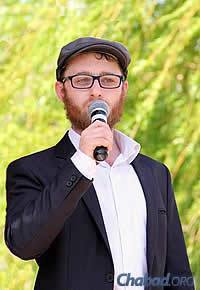
“Everyone here is living with the feeling of approaching war,” says Kaganovsky, “but during Rosh Hashanah in synagogue, we didn’t discuss that; we felt connected to something higher.”
‘One Big Family’
When Rosh Hashanah preparations began in Donetsk—the battered eastern Ukrainian city now under the control of pro-Russian separatists—all was relatively quiet, reports Rabbi Yehoshua Vishedski. But that changed the moment prayers began.
“When I started reciting the words of the first Kaddish reading, rockets began falling,” says Vishedski, a Chabad emissary who serves as director of the Donetsk-based Kashrus Council of Ukraine. “It was very loud, and the situation was very hot the next day, too.”
Vishedski traveled from Kiev together with another fellow Chabad emissary to Donetsk, arriving on the morning before Rosh Hashanah. He says that although he was also away from his family for the holiday, he felt that Donetsk was where he needed to be for Rosh Hashanah.
“I was pulled towards Donetsk,” he says. “I have lived there for many years, and I wanted to be there together with the Jews of Donetsk who have remained.”
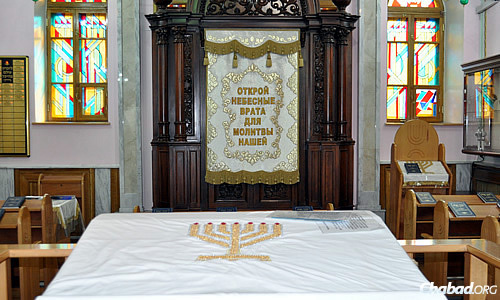
In addition to those who have stayed, many others have returned to Donetsk, hoping to salvage their jobs under the promised guise of a ceasefire.
More than 100 worshippers attended synagogue, listening to shofar and staying for the holiday meal that was served.
“It was very special,” says Vishedski. “People who came to synagogue felt that they especially needed it. They prayed loudly and with soul.”
Both Vishedski and Kaganovsky plan to return in to Donetsk and Mariupol, respectively, to lead services for Yom Kippur.
But in starting off the High Holidays, “when we sat down for the meal in synagogue, you felt like it was family,” says Vishedski. “Everyone felt like they were a part of one big family. It was a very special Rosh Hashanah.”
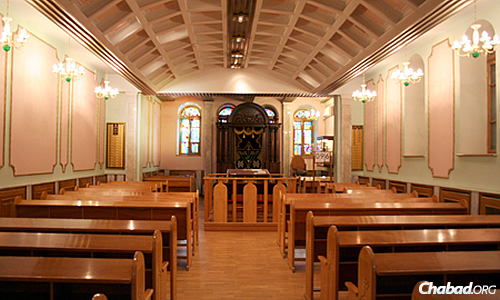

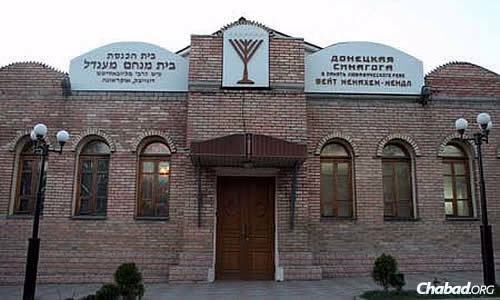
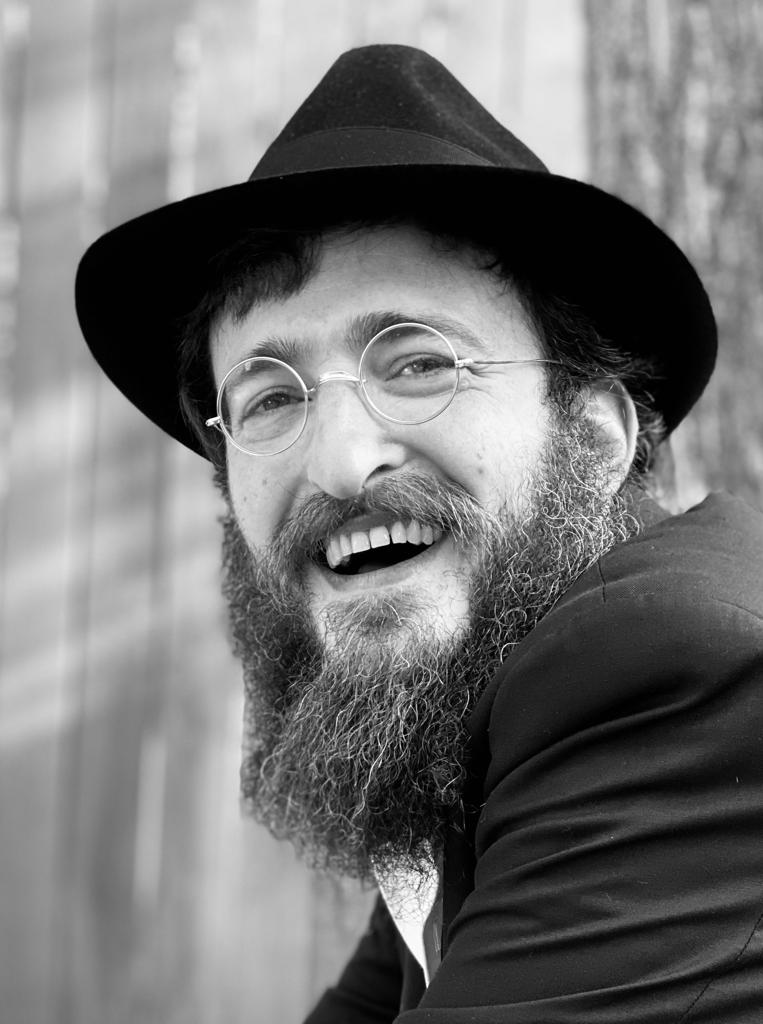

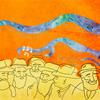




Start a Discussion